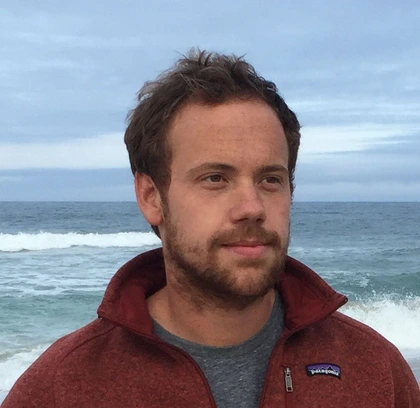
Baltimore, MD—Carnegie biologist Phillip Cleves was selected by The Pew Charitable Trusts as one of seven recipients of the 2023 Pew Fellowship in Marine Conservation and the first researcher to receive the organization’s Marine and Biomedical Science Fellowship.
The Pew Marine and Biomedical Science Fellowship supports research that applies techniques or technologies more commonly used in biomedical science to enhance marine conservation. Cleves will use genome editing technology to study the genetic basis of bleaching in coral reefs in hopes of informing new conservation strategies, such as the selection and propagation of bleaching-resistant coral populations. Coral reefs around the world have suffered significantly due to warming ocean temperatures associated with climate change.
“Coral reefs are biodiversity hotspots in decline due to stressors associated with climate change. Despite this decline, we still know very little about cellular and genetic mechanisms underlying how corals and their intracellular symbiotic partners cope with a changing climate,” Cleves said. “Just as it has been essential to understand the genetic basis of human disease to develop novel therapeutics, we hope to provide a deeper understanding of the coral stress response to inspire new conservation strategies to preserve the reefs.”
Cleves joins Pew’s global community of 202 marine fellows from 42 countries all working to expand knowledge of the ocean and advance the sustainable use of marine resources. The Pew Fellows Program in Marine Conservation supports mid-career scientists and other experts seeking solutions to challenges affecting the world’s oceans. Fellows are selected by an international committee of marine science experts with a range of expertise following a rigorous nomination and review process.
“Congratulations to Phil on this very exciting inaugural fellowship,” said Stephanie Hampton, Deputy Director of Carnegie’s Biosphere Sciences & Engineering Division. “It perfectly encapsulates his interdisciplinary expertise—deploying techniques that were developed for biomedical research to tackling the greatest environmental challenges facing our planet today.”
Added Yixian Zheng, Director of Carnegie’s Department of Embryology: “Phil is a poster child for applying molecular genetics to study corals and coral bleaching. Among his breakthroughs was the successful CRISPR-mediated gene editing of reef corals. This achievement was an impetus for the Pew Biomedical Scholar’s program and Pew Marine Fellow’s program to join hands to establish a new program to support scientists like him, who bring the know-how to study the molecular processes underpinning marine biology and marine ecosystems.”
The Pew Marine and Biomedical Science Fellowship is jointly administered by the Pew Fellows Program in Marine Conservation and the Pew Scholars Program in the Biomedical Sciences with support from the Herbert W. Hoover Foundation.
Cleves holds a doctorate in molecular and cell biology from the University of California, Berkeley and a bachelor’s degree in biology from the University of Arkansas, Fayetteville. He completed a postdoctoral fellowship at Stanford University’s School of Medicine.
